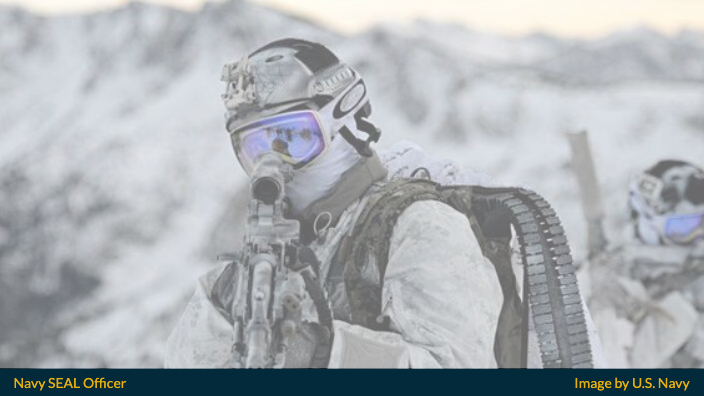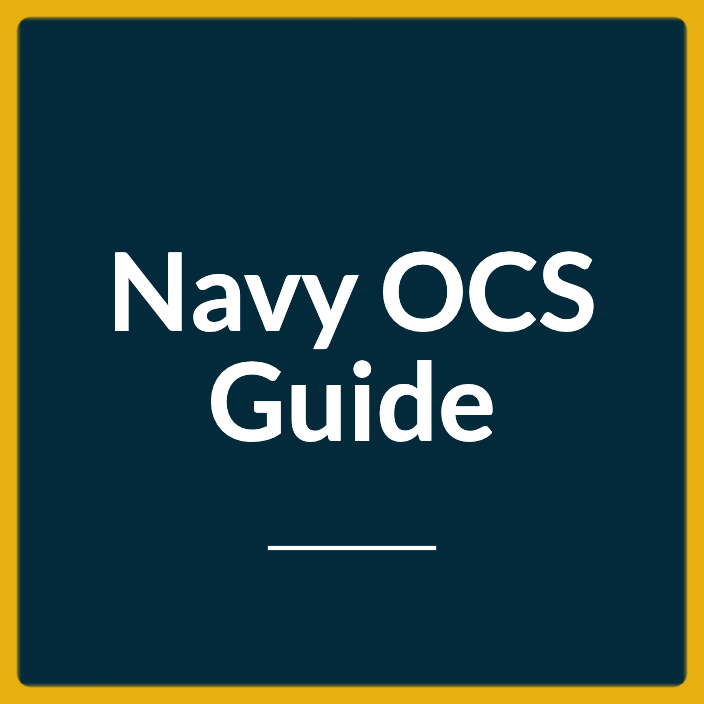Last Updated on August 30, 2023
From their grueling training to the dangerous missions they carry out, Navy SEAL officers are some of the most highly respected members of the military.
There is a common assumption that all officers in the Navy SEALs are required to engage in combat; however, the actual situation is more complicated.
This article will explore whether Navy SEAL officers engage in combat and how long an officer can stay operational compared to their enlisted counterparts.
What is a Navy Seal Officer?
A Navy SEAL officer is a highly trained individual who leads and oversees the operations of a special operations unit in the United States Navy. They handle planning, organizing, and executing missions on land, sea, or air to achieve their objectives.

Navy SEAL officers have Unrestricted Line officer status in the Navy, requiring them to have a larger scope of responsibilities and be held to more rigorous standards than other officers. They must be able to lead their units in the most challenging conditions and make sound decisions under pressure.
They must have strong leadership skills and be able to decide quickly in high-pressure situations. Navy SEAL officers must have excellent physical conditioning to handle the rigors of their job.
To become a SEAL officer, individuals must first complete an Officer Candidate School (OCS) program offered by the Navy, which focuses on training them in areas such as leadership, tactics, weapons systems and maritime operations.
Then, they go to Basic Underwater Demolition/SEAL (BUD/S) training, which is a grueling six-month program designed to test their physical and mental limits. After successfully completing BUD/S, they become an officer in the Navy SEALs.
A Navy SEAL officer is a highly trained and capable leader who is prepared to take on any mission in any environment. This profession requires commitment, dedication, and the willingness to go above and beyond. Ready for more? Next time we’ll be exploring if Navy Seal officers see combat.
Do Navy Seal Officers See Combat?
Navy SEAL officers direct their teams during warfare and must be ready for potential combat. Yet, their primary responsibility is to manage and lead their teams, so they are not usually in the thick of the fighting—similar to other Unrestricted Line officers.
Most of their combat operations take place behind the scenes and involve planning, organizing, and executing missions with a focus on minimizing risk to personnel. This means that while Navy SEAL officers may be present during combat operations, they are not necessarily in the thick of the fighting.
As a Navy SEAL officer, your role is to lead and oversee special operations in areas such as land, sea, or air. While you handle planning and executing missions, it is possible that you may see combat during your deployment. To ensure the success of any mission, you must be prepared to navigate challenging situations and decide quickly.
You will also need to have a high level of physical fitness in order to carry out your duties effectively. Depending on the mission, you may find yourself in close-quarters combat or even engaging in direct combat with enemy forces. In short, Navy SEAL Officers may very well see combat during their deployments, but this largely depends on the specific mission at hand.
Junior officers have more time in the front lines of combat than their senior counterparts, as the latter are more likely to be in command or operations roles. That being said, even the most senior Navy SEAL officers will sometimes engage in combat if necessary.
Besides being trained militants, Navy SEAL officers must also be forceful leaders with excellent decision-making skills for when things get tough.
If you have the courage, strength and determination to serve your country as a Navy SEAL officer, then this career could be for you. Join the ranks of our nation’s most elite forces and be prepared to take on any challenge that comes your way.
What is the operational duration of officers versus enlisted SEALs? Find out in the next section.
Difference in Operational Service for an Officer Compared to an Enlisted SEAL
Compared to enlisted SEALs, officers typically stay operational for a shorter period. After 10-12 years of deploying and training, it is common for Officers to become less involved in the platoon setting.
Instead, they often move into higher positions, such as squadron commander at the United States Naval Special Warfare Development Group (DEVGRU). If the officer is capable, this is how they can extend their operational life well into their mid-30s.
Although this is a physically demanding job, officers in the Navy SEALs go through rigorous training and years of experience to ensure that they are prepared for any situation. The veterans with experience become teachers and mentors as they build up their expertise over the course of their career.
If you are interested in becoming a Navy SEAL officer, remember that this career requires strength, courage and determination. With hard work and dedication, you can become an integral part of one of the nation’s most elite forces.


